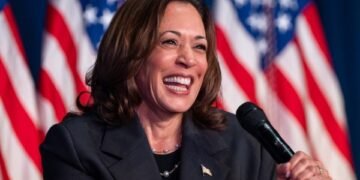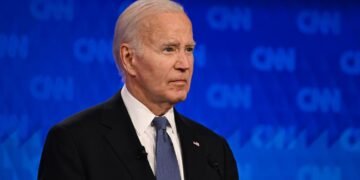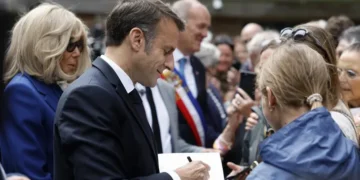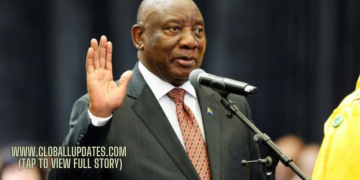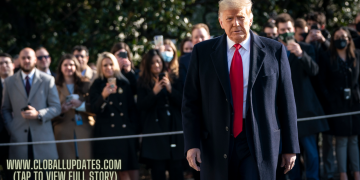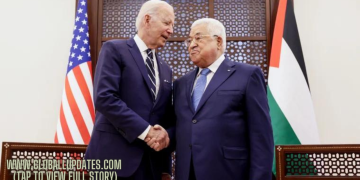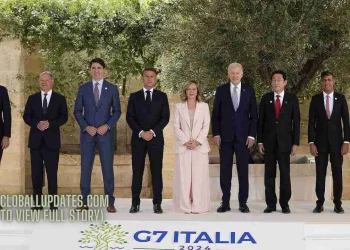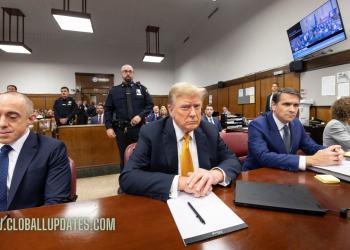Defending the principles of the U.N. Charter, which Moscow is widely accused of violating by invading Ukraine, will be the topic of a meeting to be presided over by Foreign Minister Sergey Lavrov, according to Russia’s U.N. ambassador, who dismissed U.S. and European Union descriptions of its presidency of the Security Council this month as an April Fool’s joke on Monday.
The United States anticipates that the Russians will conduct themselves professionally, but that they will use their position as host “to spread misinformation and advance their own agenda with regard to Ukraine, and we will stand ready to call them out at every single moment that they attempt to do so,” U.S. Ambassador Linda Thomas-Greenfield told reporters earlier on Monday.
She and Josep Borrell, the head of foreign policy for the European Union, both referred to Russia’s assumption of the council president as an April Fool’s joke.
According to Security Council regulations, the 15 members alternate receiving the monthly presidency in alphabetical order. The rules of the council, which is in charge of upholding global peace and security, won’t change, the Russian Ambassador Vassily Nebenzia said reporters, adding that his country will act as “an honest broker.”
It is up to the council president to set the agenda for important sessions, which are frequently presided over by foreign ministers and occasionally by presidents. A session on “effective multilateralism via the defence of the ideals of the U.N. Charter” will be led by Lavrov on April 24.
Additionally, Lavrov will preside over monthly sessions on the Middle East, Syria, and other international hotspots like Mali, Libya, Yemen, Haiti, the region of Africa’s Great Lakes, and Colombia.
Nebenzia referred to it as “a Western narrative” and emphasised that “we think quite the opposite” in response to the U.S. ambassador’s concern that Moscow would distribute false information about Ukraine.
In response to what Moscow alleges is misinformation being propagated by Western authorities and the media regarding the Ukrainian children transferred to Russia, he stated that Russia planned to conduct an informal council discussion on the subject on Wednesday. The purpose of the meeting, according to him, is “to disprove this story” that they were kidnapped.
The International Criminal Court issued arrest warrants for Russian President Vladimir Putin and his nation’s commissioner for children’s rights last month, accusing them of war crimes for the “illegal deportation” of Ukrainian children to Russia. This brought attention to the issue. The warrants were deemed “outrageous” and “legally void” by Moscow.
The open attempt to place Ukrainian infants up for adoption in Russia was discovered to be well underway, according to an Associated Press investigation that was first reported in October. Over 8,000 children were allegedly sent from Ukraine to Russia at the time, though the exact number was difficult to determine.
James Kariuki, Britain’s deputy U.N. ambassador, asserted that Russia was not in a position to discuss international law or U.N. principles.
“Russia is waging a war of aggression against Ukraine, breaching the most fundamental tenet of the United Nations Charter—you don’t redraw boundaries by force—and its ruler has been charged by the ICC with the systematic kidnapping of Ukrainian children,” he stated.
“The United Kingdom will continue to use our position on the council to oppose their unlawful war, expose their misinformation, and defend the council’s crucial work addressing other challenges to international peace and security, especially those in Africa and the Middle East.”
Ukraine and the Baltic countries have expressed their strong disapproval of Russia’s acquisition of the council presidency.
Volodymyr Zelenskyy, the president of Ukraine, criticised the “bankruptcy” of the Security Council and reaffirmed his request for reforms to the UN body and other international organisations.
In addition to speaking for Latvia and Lithuania, Estonia’s U.N. ambassador Rein Tammsaar referred to the Russian leadership as “shameful, embarrassing, and hazardous” for the legitimacy of the council.
Nebenzia was questioned about whether Russia would exercise its right to abstain from voting when Ukraine was under discussion in accordance with Security Council protocol.
“No,” he responded, indicating that in addition to Ukraine’s allies, the United States, Britain, and France would all have to go.
The Russian envoy remembered that the U.K. and the U.S. held the council president consecutively in September and October 2003, following the U.S.-led invasion of Iraq in March 2003.
Nobody questioned their eligibility to serve as president, Nebenzia claimed. And nobody raised the possibility that they stop talking about one of the topics that was maybe the hottest at the time.


